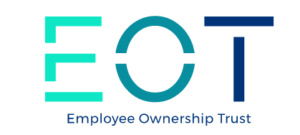In the glittering world of entrepreneurship and commerce, it’s easy to get swept away by success stories, glossy images of thriving enterprises, and tales of overnight triumphs. Yet, behind the polished facade of even the most prosperous businesses lies a truth seldom spoken aloud—every business is flawed in its own way.
The Myth of Perfection
Let’s debunk the myth of flawless businesses right from the start.
No matter how well-structured, efficiently managed, or expertly marketed, every business harbours imperfections, shortcomings, and challenges. These imperfections are not signs of failure but rather inherent characteristics of the complex ecosystems businesses operate within.
Imperfect Foundations
Businesses, at their core, are human constructs. They are born from ideas, nurtured by ambition, and built by individuals—fallible, imperfect beings. In this light, flaws are inevitable.
From flawed strategies to imperfect execution, businesses are a reflection of the human condition—always evolving, learning, and adapting.
Operational Challenges
Operational inefficiencies, logistical hurdles, and occasional missteps are part and parcel of the business landscape. Whether it’s delays in production, supply chain disruptions, or unexpected market shifts, these challenges test the resilience and adaptability of businesses, forcing them to evolve and improve.
Customer Relations Realities
Even the most customer-centric businesses face criticism and complaints. No product or service can cater to the needs and expectations of every customer. Managing expectations, resolving conflicts, and learning from customer feedback are ongoing challenges that businesses navigate.
Organisational Flaws
Internal dynamics within businesses often present their own set of challenges. From communication breakdowns to cultural clashes, navigating the intricacies of organisational behaviour is an ongoing process that demands constant attention and adaptation.
Embracing Imperfection
Instead of striving for an unattainable perfection, businesses can thrive by acknowledging and embracing their imperfections. Accepting flaws as opportunities for growth, businesses can foster innovation, encourage continuous improvement, and build resilience in the face of adversity.
How much adversity have we all seen lately?
💥 Brexit
💥 Covid-19
💥 Economic downturns
💥 Energy crises
I don’t know about you, but I am sick to the back teeth of it all; especially when you look at how each one has been mis-managed throughout.
The Power of Transparency
Transparency about imperfections can strengthen the bond between a business and its stakeholders. Openly acknowledging areas of improvement and efforts to address them fosters trust, authenticity, and a shared sense of purpose among employees, customers, and partners.
Conclusion: Embrace Imperfection, Foster Progress
In essence, accepting that every business is imperfect is not a concession of defeat but a celebration of reality.
Read that again
(only once though, otherwise you will get stuck in a loop and never get any work done)
By acknowledging and working to address their flaws, businesses can foster a culture of continuous improvement, innovation, and above all resilience.
Understanding that imperfections are a natural part of the business journey allows for a more forgiving and adaptive approach. Embracing imperfection is not a sign of weakness but a pathway to growth and progress in an ever-changing business landscape.
In the end, it’s not about eliminating every flaw but about harnessing imperfections as catalysts for improvement and evolution. After all, it’s the imperfections that often lead to the most significant innovations and advancements.





